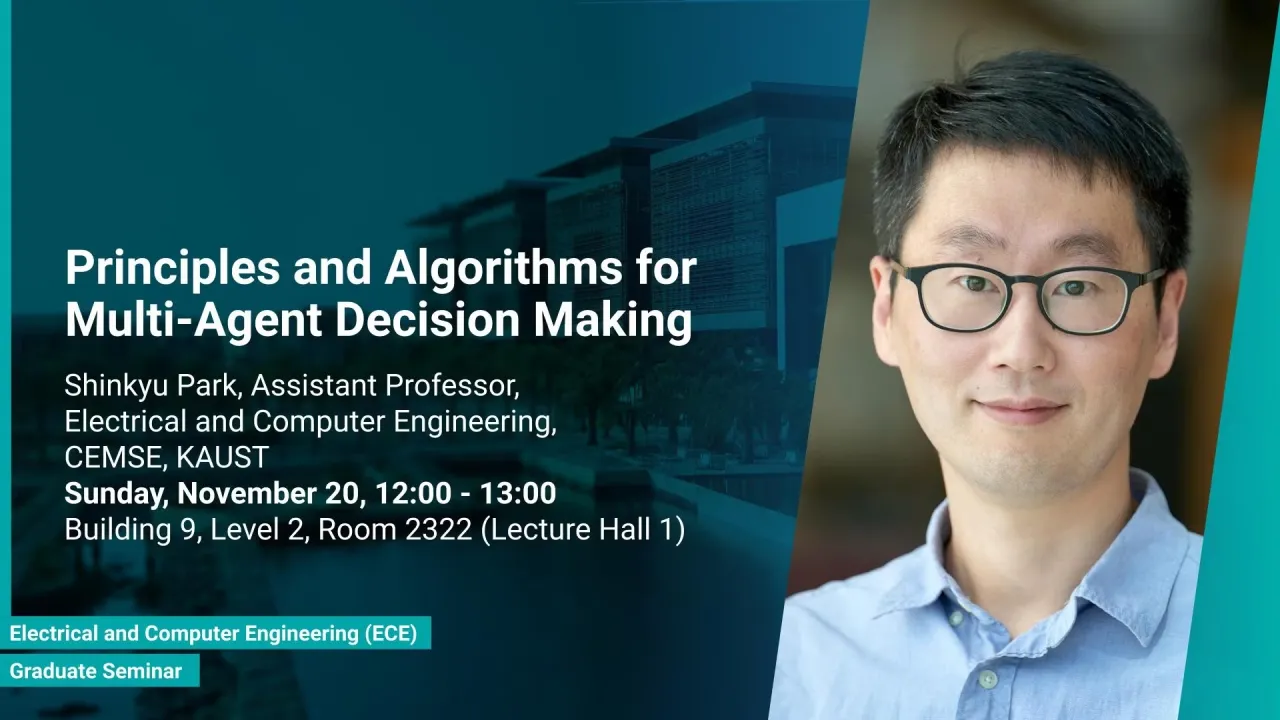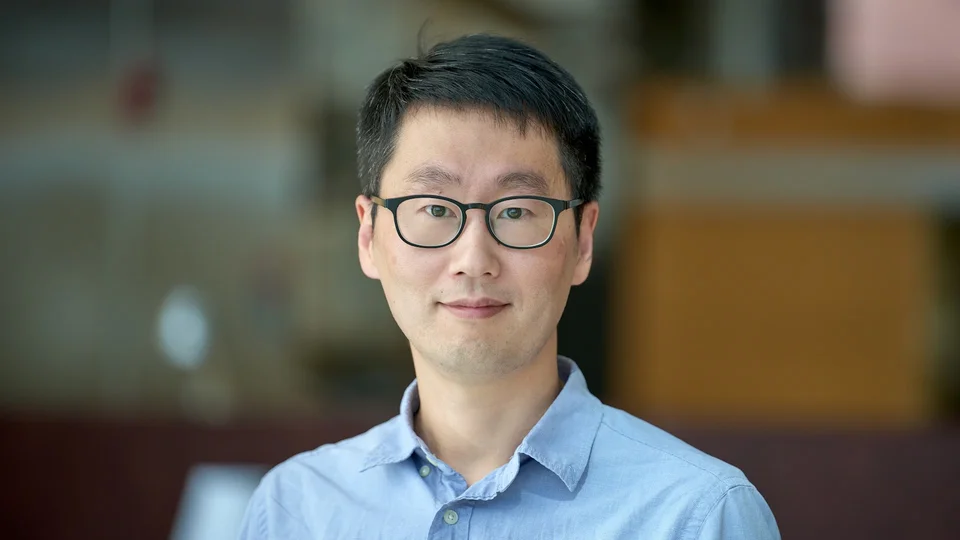
Principles and Algorithms for Multi-Agent Decision Making
A multi-agent system consists of individual agents sharing information and coordinating for collective decision making. The study of multi-agent decision making has important implications in conceiving networked engineering systems - a team of mobile robots or a fleet of drones - that can effectively coordinate to carry out assigned missions. Modeling such system as feedback interconnections of many smaller units allows us to examine its long-term behavior using analytical tools from feedback control theory, such as Lyapunov stability and bifurcation analysis. In this presentation, we discuss how such tools can be used to predict asymptotic behavior of the agents' decision making process and also to design computational models of the decision making process.
Overview
Abstract
A multi-agent system consists of individual agents sharing information and coordinating for collective decision making. The study of multi-agent decision making has important implications in conceiving networked engineering systems - a team of mobile robots or a fleet of drones - that can effectively coordinate to carry out assigned missions. Modeling such system as feedback interconnections of many smaller units allows us to examine its long-term behavior using analytical tools from feedback control theory, such as Lyapunov stability and bifurcation analysis. In this presentation, we discuss how such tools can be used to predict asymptotic behavior of the agents' decision making process and also to design computational models of the decision making process.
Brief Biography
Shinkyu Park is the Assistant Professor of Electrical and Computer Engineering and Principal Investigator of Distributed Systems and Autonomy Group at King Abdullah University of Science and Technology (KAUST). Prior to joining KAUST, he was Associate Research Scholar at Princeton University engaged in cross-departmental robotics projects. He received the Ph.D. degree in electrical engineering from the University of Maryland College Park in 2015. Later he held Postdoctoral Fellow positions at the National Geographic Society (2016) and Massachusetts Institute of Technology (2016-2019).
Park’s research focuses on the learning, planning, and control in multi-agent/multi-robot systems. He aims to make foundational advances in robotics science and engineering to build individual robots’ core capabilities of sensing, actuation, and communication and to train them to learn the ability to work as a team and attain high-level of autonomy in distributed information processing, decision making, and manipulation. His past research projects include designing animal-borne sensor networks to monitor wild animal groups in their natural habitats. He also created a fleet of urban autonomous surface vessels capable of transporting people, providing deliveries and trash removal services through urban canal networks. MIT News highlighted a selection of research achievements. He is a recipient of 2022 O. Hugo Schuck Best Paper Award (Theory) from the American Automatic Control Council (AACC) for his paper titled “KL Divergence Regularized Learning Model for Multi-Agent Decision Making.”
